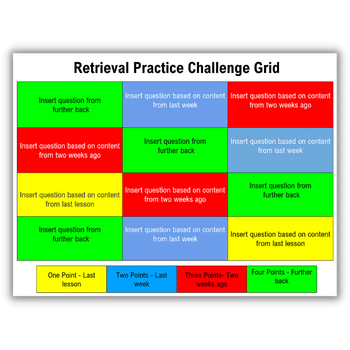9 Free ‘Anytime, Anywhere’ Learning Activities For You And Your Students, All In One Place

Modern Foreign Languages Consultant for the Harris Federation, David Shanks, on the quiz-based app that can help engage young learners

- by David Shanks

The sheer number of variables that impact upon your students’ learning make researching and evidencing what works best an incredibly complex task.
However, various studies particularly from the world of cognitive science have demonstrated that there are some guiding principles in which we can have a lot of confidence. Two such strategies are ‘spaced repetition’ and ‘retrieval practice’.
Hermann Ebbinghaus’ (1913) famous learning and forgetting curves show us the importance of revisiting material and the intervals at which to best do this. Equally, Karpicke & Roediger (2008) have shown that “self-testing is critical in building robust long-term memory of learned materials”.
That task of dredging things up from long-term memory (and not being spoon fed or asking Google!) is vital for students to acquire automaticity of the key knowledge of their subject.
For example, just think how inhibiting it is for a student’s long-term progress if they cannot automatically recall their times tables or sound-spelling links.
Here’s one way you can embed both spaced repetition and retrieval practice into your students’ learning.
The app
Quizlet is an excellent set of free digital study platform that has both browser-based and app (Android and iOS) versions. It is predicated on the idea of a traditional flashcard that has a ‘term’ and an associated ‘definition’. Used correctly, it can afford learning opportunities that allow it to be effectively and practically implemented in the classroom and at home with minimal technological fuss.
‘Sets’ are collections of terms and definitions and are usually arranged thematically eg animals in French, the nine times tables, capitals of countries. And the seven available study modes (Flashcards, Learn, Spell, Test, Match, Gravity and Live) mean that you and students can differentiate learning accordingly and, when working individually, students can select their preferred activity type.
The open-source ethos (millions of sets are shared) means you will never again have to produce full spelling or definition lists again – simply search what is already there, collate, adapt and deliver.
Adapted to the needs of the learner, it can also provide basic feedback on mistakes to drive progress and helps to identify your ‘weakest’ terms so you can focus on where to improve (Assessment for Learning). It promotes independent learning at a student’s own pace and can enhance engagement through elements of gamification and competition, but importantly not at the expense of learning.
9 simple activity ideas to get going
On to the good stuff. There are myriad ways in which Quizlet can be used, and you need to adapt it to your own context and students, but here are some easy suggestions that will help you get started:
• Set vocabulary-learning homework and flip the learning (students can find you by searching your username, or you can give them the short URL link).
• Search for a topic, reference or book you are teaching to see just how much is out there already.
• Work with colleagues to develop ‘sets’ that can be share instantly.
• Embed the Match up game in your lesson start/finish routines. Pass a tablet or device during the register or project the game on your interactive board. Have students pass by the board and match a term on the way to their seat.
• Use the Test function at the end-of-units to review. Allow student to repeat and give access to the other support modes until they get 100%.
• Generate and print a multiple choice test on your current topic.
• Generate and print paper flashcards to play a game of quiz-quiz-trade.
• Have the app read vocabulary aloud in another language using Speller. Can you spell it correctly as a class?
• Want to foster collaboration? Try the new team-based game, Quizlet Live, that automatically groups student together and puts them in competition against other groups.
David Shanks is the Modern Foreign Languages Consultant for the Harris Federation and tweets regularly on Languages and EdTech at @HFLanguages.










